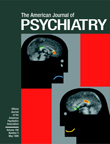Psychiatrists are called on to provide humane services for some of society’s biological and psychosocial casualties. Increasingly, we seem to imagine that most psychopathology is ultimately due to an inherent or acquired neurophysiological defect. Sometimes another reality just stands there scoffing at our professional defenses. Sexual Aggression, perhaps without intention, requires us to go far beyond such illusions and come to grips with the larger forces that shape human misfortune in an advanced culture.
Jon Shaw and 14 colleagues provide scholarly perspectives on sex crimes committed by juveniles against women and children. Sexual Aggression focuses on damaged children whose sexual development has followed an egregiously aggressive exploitative pathway. Each chapter is clearly organized, of manageable size, and well referenced, and each has a clinically relevant focus. The focus is more on the aggressors than on their victims, and the real story is that the aggressors were themselves victims of a combination of violent households, neglect, emotional abandonment, physical abuse, sexual exploitation, or overexposure to pornography.
The authors do not write as though they were strident crusaders dealing with the rising epidemic of sexual victimization and violent crimes. They make clear that better reporting of sexual victimization now occurs. They are skittish about dwelling on the actual social deterioration that these data may reflect. Are the greater demand for treatment of juvenile sex offenders and the overcrowding of detention facilities simply artifacts of better reporting? Or has family life deteriorated so much that we are generating a new, frightening underclass of boys and girls (yes, girls)?
The contributors to this volume work in some of the roughly 1,000 new treatment programs for young sex offenders. They offer sharply delineated descriptions of the offenders and their intelligent, evolving treatment approaches for them. The authors are not naive about the seemingly impressive low recidivism rates of rearrest for sex crimes. They cite the much higher rearrest rates for property crimes, methodological challenges to valid follow-up data, the fact that some teenagers become more civilized as they mature, and the untreatability of some juveniles. They also are aware that adolescent sexual aggression is often just one aspect of a more basic disturbance with many problematic faces—e.g., later spouse abuse.
If neglect, abandonment, violence, and premature exposure to intense sexual excitement are the ultimate explanations for these conspicuously damaged lives, is it enough that we mental health professionals simply maintain our focus on treatment? Courts and child protection agencies bring only some of these casualties to us. We evaluate them from our developmental, social, cognitive, and biological perspectives. Then, through highly creative methods, we provide specific interventions for the numerous deficits that we perceive. We have done what society has asked of us: regrouped in the 1990s to provide therapy for a newly defined group of patients. It is far easier to focus on the posttraumatic stress disorder of their victims than to invest in these sociopathic boys and girls. Sexual Aggression will help us to admit that these villains are not privileged hedonistic brats who have squandered ample opportunities for internalizing the best of family and cultural processes. A reader could wonder about the factors that lead some young people who internalize their traumas to be called patients and some who externalize theirs to be called criminals.
Sexual Aggression has many difficult-to-attain virtues, including an evenly good treatment of specific important topics by each author. The authors skillfully emphasize development. There is less DSM-IV here and more appreciation of lines of development gone awry, a perspective that is useful for all mental health professionals. Sexual Aggression provides a better sense of what some adults with paraphilia, sexually compulsive people, and sex offenders might have been through as children.
I wish that the scope of the book had been a bit broader. It does not discuss the problem of getting professionals to work with perpetrators and their subsequent burnout, the causes of the epidemic of parental deterioration, the general problem of the safety net for disturbed youth, or strategies for coping with and preventing this public health dilemma. My wish is a compliment to Jon Shaw and his erudite colleagues.

